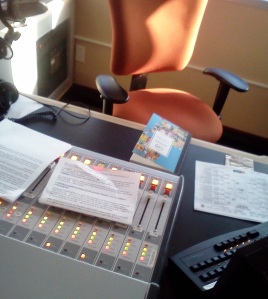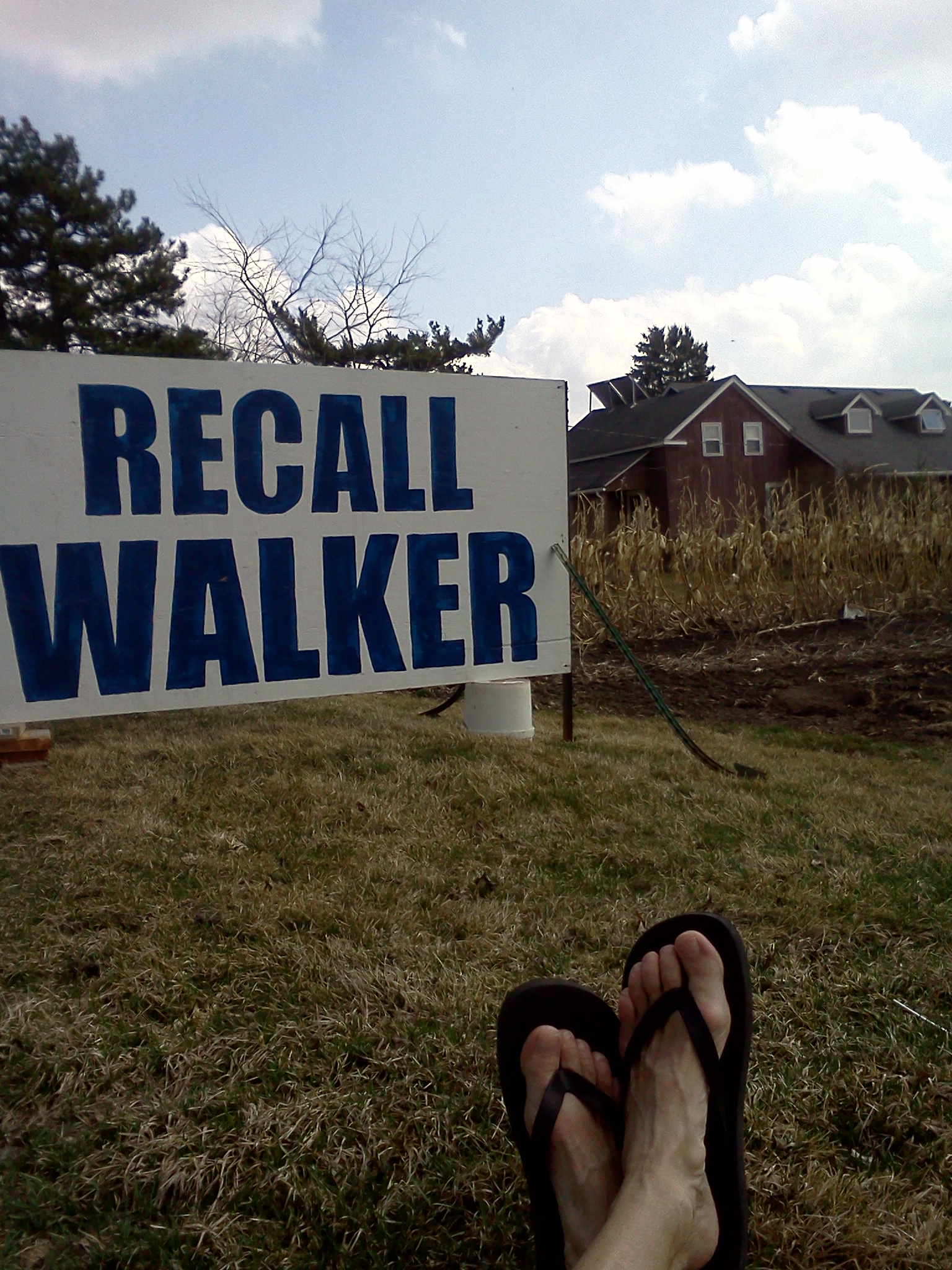Warming Trend and the Cool Constant of Cooperation
Today is the third above 70 degrees in Wisconsin. Locals clearly love it. So do I.
And … really? 70’s in late winter here in a U.S. state that shares a rather large lake (Superior) with the Canadian state of Ontario?
Maybe it’s the Texan in me who can’t imagine anyplace else acting in total defiance of the seasons. Maybe it’s my vigilant interest in our reading the trends to avert calamitous climate change; I mean, isn’t this major unusual warmth?
Whatever the weather, things in Wisconsin have continued metaphorically hot anyway. Perhaps not as dramatic as last winter’s pre-Occupy occupation of the statehouse in Madison. You may remember the public protest of the anti-union practices and policies of the new gubernatorial administration (EX:C blog “Looking under the hood – AKA whiplash in Wisconsin,” April 8, 2011). In the year since the political heat has been kindled by sustaining a pretty hefty effort toward recalling Governor Scott Walker. It was Walker who, with the support of the now-well-known and remarkably wealthy Koch brothers, staged last year’s catalytic upset.
As with any such circumstance, the people of Wisconsin are hardly of one mind. Some citizens completely support the Governor and see his policies as a source of decreased tax burden. I have more listening to do on the subject.
This kind of public dissension, of course, is not exclusive to Wisconsin. Public discourse is a cornerstone of democracy and controversy may always have been typical of American experience. But of late polemic extensions on controversy threaten becoming definitional. Here on hiatus from the 100 Voices – Americans Talk about Change road trip I find my ostensible rest time racked by increasingly jarring awareness of this seeming joy-of-public-opposition.
The gratuitous polarization practiced and modeled by our media and public leadership is by no means new, but it is becoming more perplexing. At least for me.
This is why. As many of you know, I’ve been on the road – driving my Mini Cooper around the country’s highways since January 21. My sole goal is getting the word out on the wealth of ideas and insights shared by the people who spoke me over the first 100 days of the Obama Administration (January 21 – April 30, 2009 www.exchange09.com) – the 100 Voices.
In the process, I’ve heard powerful and pervasive evidence … again! … of the interest and capacity everyday people have for working things out. Sure, we disagree. Especially when we base our responses on rigidly stereotyped versions of “those” fill-in-the-blank people. It’s easiest to disagree with “those” people when we’re talking with somebody who also writes off the same people as “those.” It’s a little harder, but can get lots more heated, to speak directly to “those” people. We’re most likely to do that if two conditions exist:
- We’re in the company of people with similarly rigid stories about “those” people, and
- The “those” people we’re haranguing have equally rigid stereotypes about us.
This is the jarring part. Again and again in the real conversations I am a part of with real American people from all sorts of ideological and circumstantial backgrounds I am hearing and observing the courage to listen through those stereotypes. I’m hearing the articulation of shared value for family and community wellbeing, for jobs, for health and education and clean water and air, for inspired and wise leadership. There’s not a lot of sticking with the stories we hear and tell ad nauseum about “those” people. So what’s up with that?
The people I’m listening to and talking with aren’t moved to listening and cooperation to look good or to do it right. The motive is more immediate than that, more practical. “We’ve got a community to keep alive,” a businessman in rural Wisconsin said this morning. “People need livelihoods. And there’s promise around here for growing our community our way when we stop and look around.” When I asked what he thought “our way” was the man looked out the window toward the lake he told me hasn’t been thawed out this early as long as he can remember. Then he said, “Well, it takes that. Stopping and looking around together. It takes people willing to put in the work to make ideas real. Doing it our way means … well, it means looking at what we all use and care about in this town. And it means using the experts we have here, different people with different skills and abilities to take care of what we all use – people who know this place because we live here.”
A few days ago I got to spend a great hour with an urban Wisconsinite on a public radio talk show (check out the show here http://wpr.org/webcasting/audioarchives_display.cfm?Code=bme — look for 3/14/2012, 5:00, program # 120314M . Ben Merens is a deft and remarkably gracious interviewer. The listeners who called in were insightful and right on the conversation. Even there, on the radio, I found the interest in listening – the interest, perhaps more fundamentally in connecting, in finding ways around the hostility that pollutes our mediated days (i.e., our media-fied days).
Ben Merens is a deft and remarkably gracious interviewer. The listeners who called in were insightful and right on the conversation. Even there, on the radio, I found the interest in listening – the interest, perhaps more fundamentally in connecting, in finding ways around the hostility that pollutes our mediated days (i.e., our media-fied days).
I had another conversation this morning with one of the most devoted, creative and energetic academic administrators I’ve ever met. As we spoke of services to university students – services supporting actual learning, services supporting dignity and health of every kind, this man said, “Relationship, connection and listening are so central to who each person is.” He described his own realization that these things are readily overridden by conforming to accreditation standards and pursuing innovations, neither of which can be accomplished if people are disconnected and functioning with what turns out to be weak knowledge – knowledge based on the false efficiency of quick assumptions and ultimately too arrogant to slow down for listening.
Three men in three different professional positions – a small businessman, a public radio talk-show host, a university administrator. We listened and we spoke. It wasn’t the stuff of commercial media – no charged hostilities from positions of dramatically entrenched authority. We listened and we spoke. We made meaning together. We learned from each other. We observed and wandered around a bit among the stronger, more reliable features of community. We did what people tend to do in response to the ideas and insights of the100 Voices. We brought forward our own voices. We cooperated. We built relationship.
All of these things happen countless times every day in every community, but they don’t make news. It’s really a wonder our cooperative abilities haven’t atrophied, but they haven’t. They are here and ready. They are likely in need of nurture, encouragement, practice – but they are here. I see and hear them with a consistency that is both a surprise and a great comfort.
Yes, it’s unseasonably hot in Wisconsin. The weather and its change inescapable no matter the circumstances we fabricate. In Wisconsin today tensions flare around mining and school vouchers, around recalling the governor and a growing number of legislators.
There’s backdrop to all of this that is worth checking out. It’s the cooperation that makes all the controversy possible. It’s the cohesion of everyday people in everyday community that is likely the social, cultural, relational capital necessary for any of the theater of governance and commerce to take place.
The more I hang out with the fact, the promise, the natural resource of this cohesion, the more jarring and false seeming are the chronic enactments of polarization. I have no doubt these postures have basis in difference of opinion, world view, fact-base, whatever – but, with increasing certainty, I profoundly doubt the intractability of it all.
Hyped intractability may generate power bases, it may even enhance financial coffers; but it isn’t the first interest or impulse of people living the everyday practicalities of family, neighborhood, campus, and community.
That’s what I’m seeing.
What about you?
 Clare Consultation, LLC
Clare Consultation, LLC
Listening brings us to a richer reduced place, unlearns of habits to protect us from the profundity of our original and authentic natures of compassion and humility. How liberated we are to learn that the noise we make is so much grist-clatter of stuckness. The lyric, the pulse of heartbeats when it stops- relational capital in deed, and how!